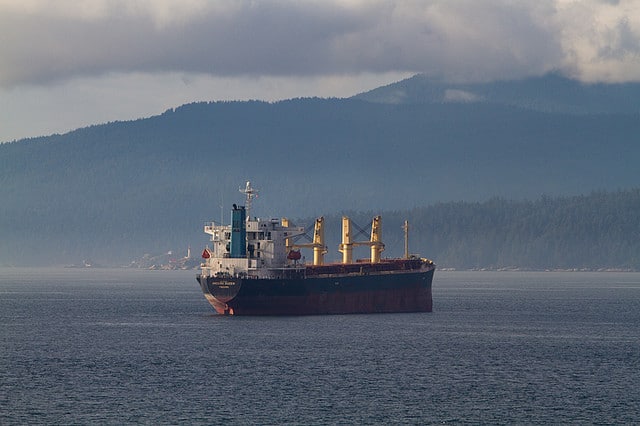The province of British Columbia has filed a motion with the National Energy Board (NEB) to compel pipeline company Kinder Morgan to answer the province’s questions on its Trans Mountain expansion project.
In the motion, the province argues the company has failed to supply adequate answers to dozens of questions on issues such as oil spill response. A 41-page chart submitted to the NEB by the province outlines all of the instances in which Kinder Morgan did not adequately answer its questions.
For instance, Kinder Morgan declined to provide a copy of its emergency response program documents to the province — after promising to do so upon request to “any member of the public” in its application — on the basis that they contain information of a confidential and sensitive nature.
In another instance, the province requested a detailed report on Western Canada Marine Response Corporation’s (WCMRC) ability to respond to a worst-case scenario oil spill. Kinder Morgan responded by telling the province to go ask the marine oil spill responder for that information themselves.
“Trans Mountain relies on the response capacity of WCMRC … and makes numerous references throughout the application to such capacity,” says the province’s filing with the NEB.
“Trans Mountain ought to provide evidence substantiating the claims made in the application, so that the NEB, the Province, and other intervenors may evaluate the response capacity available for project-related spills … It is not incumbent on the Province or any other intervenor to obtain information which is relied upon by the proponent in its application directly from third parties.”
The province argues in the motion that Kinder Morgan’s “failure to file the evidence requested by the province” denies intervenors the information required to fully understand the risk posed by the project and Trans Mountain’s ability to effectivey respond to an oil spill.
“It further denies the parties a meaningful opportunity to test and clarify the evidence filed by Trans Mountain,” the province’s lawyer Elisabeth Graff writes.
The City of Vancouver and Green Party MLA Andrew Weaver have also complained that Kinder Morgan did not answer their questions.
In May, the province submitted more than 70 information requests dealing with maritime and land-based oil spill response, prevention and recovery systems to the NEB.
World-leading marine and land oil spill systems are two of the five requirements the B.C. government has outlined must be satisfied for B.C. to support any heavy oil pipeline.
The proposed Trans Mountain expansion would triple the pipeline’s capacity, bringing an extra 590,000 barrels of oilsands bitumen to Burnaby each day, where it would be loaded onto 400 oil tankers each year. The hearing process has already been strongly criticized for not including any cross-examination of evidence or any community hearings.
Photo: Tyler Ingram via Flickr
Subscribe to our newsletter
Stay up to date with DeSmog news and alerts







